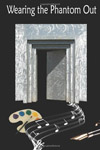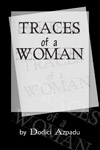by Dodici Azpadu
![]() The problem with pronouns is them turn up where him least expect those, which case they is confused by who. Any questions?
The problem with pronouns is them turn up where him least expect those, which case they is confused by who. Any questions?
No errors show up when Microsoft Word’s grammar checker is used on the opening sentence of this article. It’s possible the sentence received a pass because the errors in it crashed the correction function. Enough said about relying on a grammar checker for pronoun errors.
Consider the types of pronouns writers need to use correctly: personal, demonstrative, indefinite, interrogative, possessive, reciprocal, reflexive, and relative. I tell my English 101 students that I don’t care if they know the names of parts of speech, so long as they use words correctly. For writers, however, knowing the parts of speech and how they function is essential to craft. After all, if writers were painters they would know how and when to mix cadmium white and cerulean blue.
In my previous article, “Grammatically Correct: Pronoun Consistency,” I concentrated on pronoun agreement using personal and indefinite pronouns. In this column, I will note a few rules that help writers avoid the vague use of they, it, and you. A frequent error comes in the form of they say or it says constructions.
They predict that Federer will not be in the Australian Open finals this year.
The pronoun they must refer to a specific antecedent, and there is none.
Bloggers predict that Federer will not be in the Australian Open finals this year.
Bloggers is almost as vague as they, but it is a noun.
Writers who use the pronoun it carelessly can also go astray. The clause above—but it is a noun—uses it correctly because it refers back to bloggers. Students frequently use the following faulty construction.
In the essay, it says Romeo was a teenager.
The construction is not simply wordy and vague. The pronoun it has no specific antecedent. A corrected version can be written as:
The essay describes Romeo as a teenager.
The pronoun you should not be used in a general sense to refer to a group. It should be used when the writer directly addresses the reader.
The rule book says you cannot bat out of turn.
Many people speak this way informally, but writers can maintain an informal tone and still write correctly. The tone is not appreciably changed by the correct form:
The rule book says players cannot bat out of turn.
Notice how correct grammar helps writers achieve clarity.
Dodici Azpadu, MFA, PhD is a novelist, short story writer, and poet. Her fiction publications include: Saturday Night in the Prime of Life and Goat Song (Aunt Lute/Spinsters Ink) and subsequently Onlywoman (London, England). Living Room (2010) and Traces of a Woman (2014), both by Neuma Books, are available as ebooks. She’s currently at work on a novel, tentatively titled Living Lies.
 Her poetry publications include Wearing the Phantom Out (2013) and Rumi’s Falcon from Neuma Books. Individual poems have appeared in Malpais Review, Adobe Walls, ContraACultura (online), Parnassus, Sinister Wisdom, Latuca, The Rag, and The Burning Bush. Her work has also been anthologized in Centos: A Collage of Poems and Hey Pasean!
Her poetry publications include Wearing the Phantom Out (2013) and Rumi’s Falcon from Neuma Books. Individual poems have appeared in Malpais Review, Adobe Walls, ContraACultura (online), Parnassus, Sinister Wisdom, Latuca, The Rag, and The Burning Bush. Her work has also been anthologized in Centos: A Collage of Poems and Hey Pasean!
Dodici teaches “The Joy of Poetry” and “Craft of Creating Writing” classes through University of New Mexico’s Osher Lifelong Learning.
This article was originally published in the March 2011 issue of SouthWest Sage and is reprinted here by permission of the author.



























Leave a Reply